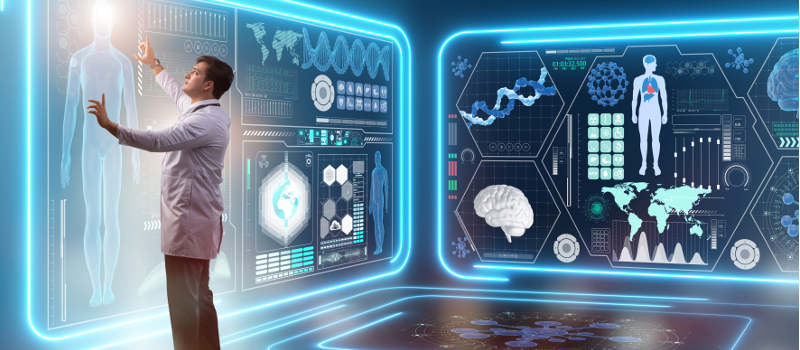hidden
Over 10 years experience of Traceability Solutions

By pharmatrax
Category: Technoloy
 No Comments
No Comments
Low-Cost Drug Development: How AI Adoption Will Change the Face of Pharma Industry
The world is in the midst of fourth industrial revolution where we are at the turning point of an overall collection of digital advancements like artificial intelligence (AI), machine learning (ML), Internet of Things (IoT), big data, and so forth. The new emerging industry, prevalently known as “Industry 4.0”, is on the tip of seeing a transformational change where everything could be effectively accessed with the click of a mouse. These technologies are changing the world in a critical manner and rapidly than ever.
As indicated by the latest UN data, the number of inhabitants in India is assessed to be 1.37 billion. Being a huge country with an immense population, the nation is developing at a fast pace as are health risks and disorders. These vexing numbers make it increasingly significant for the nation to adopt new technologies for clinical preliminaries and healthcare. From generating a theory to clinical preliminaries, AI is playing a noteworthy job in drug discovery.
Presently, the initial process of drug development starts from generating ideas to manufacturing drugs, which is moderately complex. To make the process simpler, the medical industry is organizing steps to leverage the cutting edge advancements like AI to step in to generate new ideas, theories, design experiments, and hasten the scientific procedure.
The pharmaceutical business today can be partitioned into drug R&D and drug market. In the field of R&D, the use of AI is still at the nascent stage and is used in drug discovery tasks, for example, lead compounds discovery, target screening, and so on., though the drug market is deploying AI in numerous areas like medical robots, pharmaceutical logistics, drug store robotization, drug compliance, etc.
Artificial intelligence drug discovery research has been applied for small molecular compound discovery and clinical development. It’s as yet a long time until we can deal with the complex structures of biomacromolecules. Indeed, even AI in healthcare hasn’t continued with a pace that was expected. One instance where we can substantiate this are the reports published in April 2019 that proposed IBM will stop sales of its Watson AI software for drug development. It’s considered that IBM will turn its AI endeavors to clinical development products, exploiting a huge network of healthcare partners that consists of pharma giants Pfizer and Novartis.
As indicated by the US Food and Drug Administration Commissioner, Scott Gottlieb, “AI shows enormous promise for the fate of medicine. We’re effectively building up another administrative system to promote development in this space and bolster the deployment of AI-based technologies.” AI has a huge future for streamlining the clinical trial process, by using IoT for remote monitoring, AI for EHR processing, and AI for information security. ML can possibly accelerate the clinical preliminaries through automated identification and distribution of participants in groups accurately. Big Data and AI are expected to lessen the time and cost of drug discovery significantly.
The general viewpoint for savvy tech in pharmaceuticals stays positive. For example, data mining is being used to accelerate the discovery of drug targets, while transfer learning is being applied to algorithm model training in drug discovery to find solutions to problems related to small sample compound datasets. AI is likewise being used to accelerate the process of drug screening and design.
Other than the industry, education is additionally playing a more extensive job in adopting AI for new innovations in the field of health sciences and healthcare. The eventual fate of the promising medical industry lies in the experts who will be adapted in the evolving pharma and healthcare industry.



